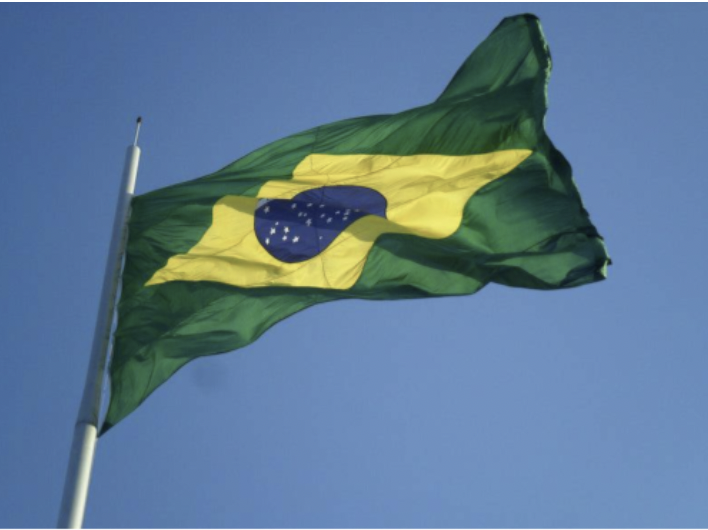The Brazilian Election: A Rundown and What It Means for the U.S.
October 17, 2022
On Sunday, October 30, 2022, the people of Brazil will cast their ballots for president in a run-off election. The current President, Jair Bolsonaro, is seeking a second term as president after a rocky first term. His opponent is Luiz Inácio Lula Da Silva(Lula for short); both are controversial figures.
Bolsonaro has been widely criticized for issues such as his failed responses to the Covid-19 Pandemic and wildfires in the Amazon Rainforest. Internationally, he has been referred to as “Brazil’s Trump” by his opponents due to his populist right-wing rhetoric and policies. The interesting thing about Lula is that if he were to win, it would not be his first term in office. Lula previously served as president from 2003 to 2011. During his initial tenure in office, he was relatively popular and oversaw high economic growth during his left-wing administration. In July of 2017, Lula was sentenced to nine and a half years in jail on the charges of corruption and money laundering. The sentence was overturned in 2021, and he is now back for another term in office.
Out of the two major candidates, Lula is favored by pollsters, but also outperformed the polls in the first round of voting. According to Gallup, Bolsonaro’s approval rating is down 20 points. Currently, his disapproval rating sits at 58%, while his approval rating sits at 38% and 4% unsure. Bolsonaro has been consistently unpopular with the Brazilian electorate since he came into office, peaking at 64% disapproval in 2021. These numbers are far worse than Lula’s, who never dropped below 70% approval during his last three years in office. On paper, Lula seems destined to win.
Bolsonaro, however, may not transfer power even if he loses. Fears have been growing that Bolsonaro will attempt to forcefully retain control in a similar vein to Donald Trump in 2020. The United Nations also warns that voters, election workers, and journalists may face harassment from Bolsonaro’s supporters.
At State High, the AP and IB teachers who focus on comparative politics often look at elections abroad and consider their relevance to Americans. Elizabeth Delafied teaches AP World History and IB History of the Americas. When asked about intimidation of voters and election workers by Bolsonaro supporters before voting, she stressed the importance of election safeguards and security and warned of the threats these intimidation measures pose.
“Certainly there is cause for concern about the possibility of intimidation, and we should, as a country, do whatever we can to protect people’s right to vote,” Delafield wrote in an email statement.
Andrew Merritt, an AP Comparative Government teacher at State High, raised concerns about the effects of calling elections illegitimate and the political chaos that might ensue.
“Election denial is an incredibly dangerous political weapon with lots of catastrophic side effects. Not only does it automatically raise concerns about and undermine trust in an electoral system, but it also potentially discredits every other election victory, which would again lead to further chaos,” Merritt stated.
Delafield also provided excellent context for how the election might turn out by using the nation’s history, citing its long experience with dictatorships.
“One thing that is important to keep in mind is that Brazilian democracy is relatively young. They’ve dealt with dictatorships that we haven’t experienced here. What happens in Brazil is not necessarily what will happen in the United States or in any other democracy. The situation in Brazil is fed by a variety of factors beyond the 2020 election, and hopefully the people of Brazil will be able to vote and elect the leader they want to lead them, without it resulting in violence or a coup,” Delafield further wrote.
This is an important reminder when you consider what happened earlier this year in the Philippines, where Ferdinand Bongbong Marcos Junior was elected in May of 2022. Marcos is the son of a former Filipino dictator. Many countries we view as democratic strongholds, such as Spain, Germany, France, and Italy have experienced dictatorships. Spain was the most recent, having been under a dictatorship from 1939-1975.
According to Lydia Roberts, a State High junior and active member of the Model United Nations Club, threats to democracy, election denial, and misinformation in the 2020 US election frame her understanding of the Brazilian election and its candidate.
“During the 2020 election and after the certifying of the results, you saw a lot of misinformation being spread and blatant lying about data and how certain mechanics work in terms of voting in hopes of spreading this huge wave of disinformation to get people to not trust the US system. This built significant doubt in the US election, which I, it has been successful in a lot of people,” Roberts stated.
Roberts sees similarities in what is happening now in Brazil: “I think that it just shows that if, you know, the United States can have such conflict over the legitimacy of a presidential election, then like any country really could,” Roberts said.
“I think that in the way a lot of countries face the same issues because in a sense, the issues that the US is are facing are issues that are related to like technology, misinformation through social media, especially through technology. So it’s perpetuated globally.”
One critical difference between the US and Brazil is mandatory voting requirements. On paper, this would be a good way to make voting more accurate in its representation of the people’s views; however, Merritt and Roberts raised concerns, both agreeing with Delafield that mandatory voting would not be “well received in this country.”
Merritt was skeptical of a mandatory voting system in the US for two reasons.
“When you live in a society based on liberal democracy, and I mean in the context of liberal rights, this should be a two-part answer. First, I don’t think you’d see that implemented because you have the right to vote and the right not to vote here. I would oppose personally any kind of mandatory voting because then you bring in people who first off may be disaffected and don’t want to vote or maybe totally ill-informed and don’t have any idea what they’re voting for,” Merritt said.
In addition, Merritt pointed to the sham referendum that recently occurred in Russia.
“I would worry about that in any country. We just saw it in Russia doing it in Ukraine. They would [go] door-to-door with guns and made people vote. Well, if I don’t vote the right way, if that’s the process we’re gonna use, which God, I hope that would not be the process, your election is automatically ill de-legitimized,” Merritt stated.
While the Brazilian election may not appear at the forefront for State High readers, Delafield emphasizes what we can learn from the results and aftermath:
“This is a critical moment in world history, and I think we should try to see what methods supporting free elections work successfully, as well as what measures or approaches fail. We should also consider historical examples of instability to better understand and address root causes,” Delafield wrote.
Over the past few years, Brazil has been ripe with crises ranging from the Amazon Fires to the Covid-19 Pandemic. Throughout those years, the nation’s president has been undermining trust in the institutions of his own nation for personal gain. His rhetoric is echoed by the wave of radical leaders who share his dismissal of democracy in favor of self-service. But among them, few have come close to going as far as he has. Across the globe, this is a pivotal moment for democracy, climate, and geopolitics. It is a decision that will undoubtedly have a lasting impact for years to come.



